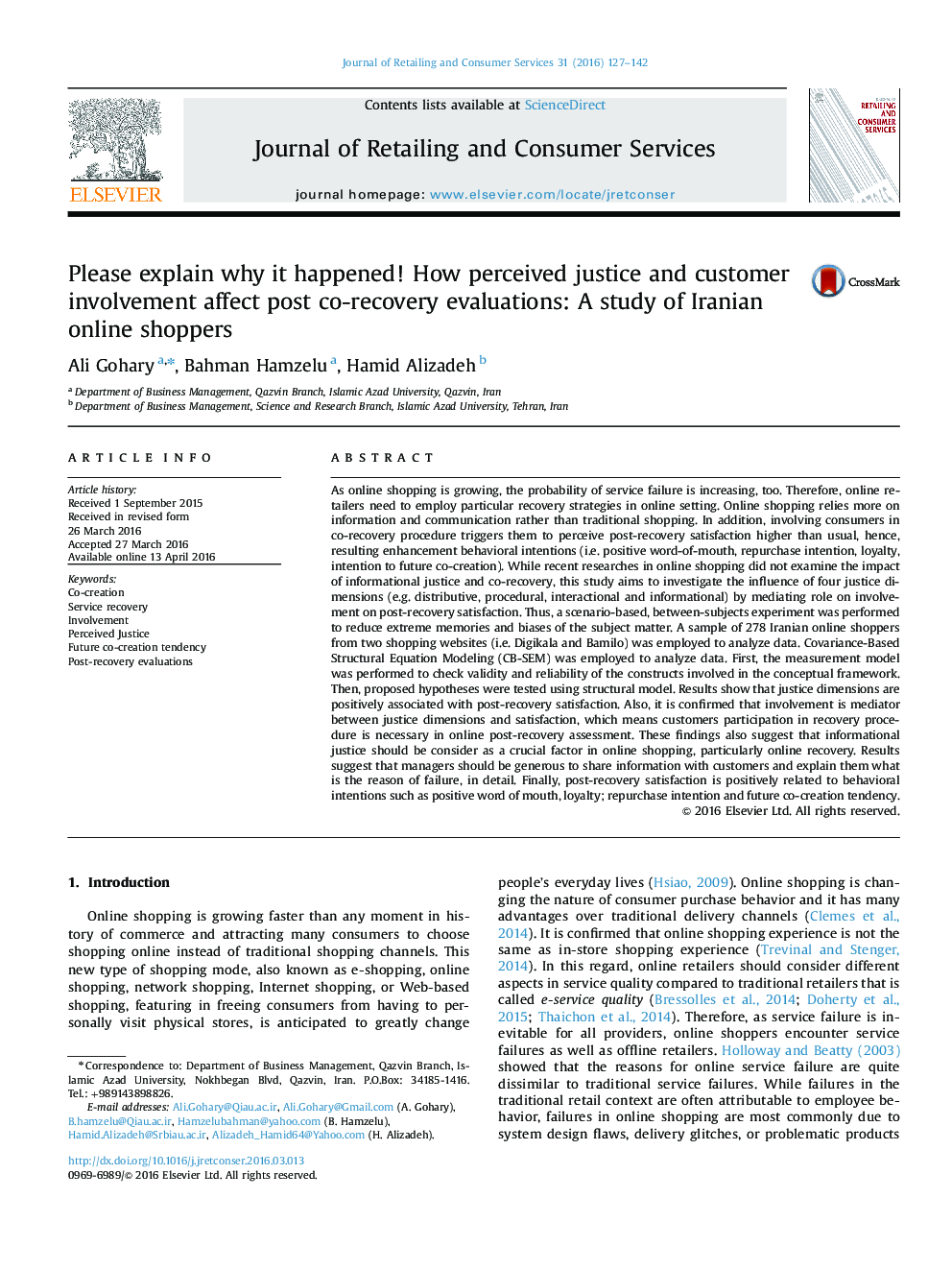| Article ID | Journal | Published Year | Pages | File Type |
|---|---|---|---|---|
| 1028745 | Journal of Retailing and Consumer Services | 2016 | 16 Pages |
•A theoretical framework was tested using structural equation modeling with a sample of 278 Iranian online shoppers.•Explaining reason of failure helps online retailers to initiate a successful co-recovery with customers.•Informational justice positively significantly increase post-recovery satisfaction.•Customer’s involvement in the recovery process mediates the relationship between four justice dimensions (distributive, procedural, interactional and informational) and post-recovery satisfaction.•Post-recovery satisfaction positively impact on behavioral intentions.
As online shopping is growing, the probability of service failure is increasing, too. Therefore, online retailers need to employ particular recovery strategies in online setting. Online shopping relies more on information and communication rather than traditional shopping. In addition, involving consumers in co-recovery procedure triggers them to perceive post-recovery satisfaction higher than usual, hence, resulting enhancement behavioral intentions (i.e. positive word-of-mouth, repurchase intention, loyalty, intention to future co-creation). While recent researches in online shopping did not examine the impact of informational justice and co-recovery, this study aims to investigate the influence of four justice dimensions (e.g. distributive, procedural, interactional and informational) by mediating role on involvement on post-recovery satisfaction. Thus, a scenario-based, between-subjects experiment was performed to reduce extreme memories and biases of the subject matter. A sample of 278 Iranian online shoppers from two shopping websites (i.e. Digikala and Bamilo) was employed to analyze data. Covariance-Based Structural Equation Modeling (CB-SEM) was employed to analyze data. First, the measurement model was performed to check validity and reliability of the constructs involved in the conceptual framework. Then, proposed hypotheses were tested using structural model. Results show that justice dimensions are positively associated with post-recovery satisfaction. Also, it is confirmed that involvement is mediator between justice dimensions and satisfaction, which means customers participation in recovery procedure is necessary in online post-recovery assessment. These findings also suggest that informational justice should be consider as a crucial factor in online shopping, particularly online recovery. Results suggest that managers should be generous to share information with customers and explain them what is the reason of failure, in detail. Finally, post-recovery satisfaction is positively related to behavioral intentions such as positive word of mouth, loyalty; repurchase intention and future co-creation tendency.
